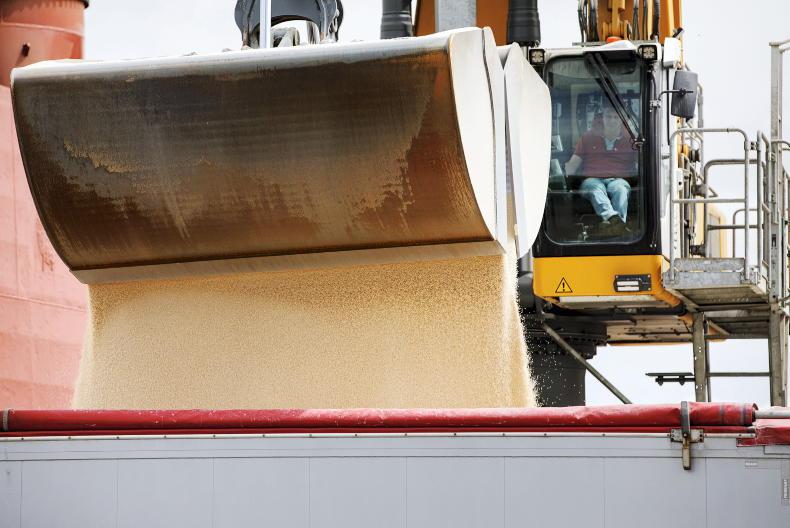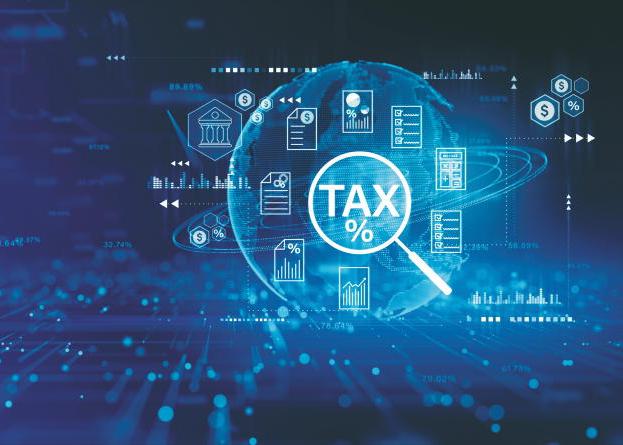It is that time of year again for all farmers, business owners and sole traders – the annual tax bill is due and you may need to talk to your accountant or complete your own self- assessment online.
Self-assessment means that people are responsible for making their own assessment of tax due, whether that is completed by themselves or on their behalf by an accountant or tax consultant.
You should register for income tax self-assessment if you are self-employed or if your only or main source of income is rental income, investment income, foreign income (including foreign pensions), maintenance payments or fees that are exempt from PAYE or if you have profited from share options or share incentives.
Deadline
The Irish tax year runs from 1 January to 31 December. You must file a tax return and pay any tax due (known as the pay and file system) by 31 October (known as the specified return date).
By this date, you must pay your estimate of tax (preliminary tax) for the current year (2021), the balance of tax due for the previous year (2020) and any capital gains tax due for the period 1 January to 30 September of the current tax year.
Filing online will generally extend the deadline by two weeks.
Preliminary tax is your estimate of the income tax, PRSI and USC that you expect to pay for the tax year, payable by 31 October of that year.
Interest charged if late payment of tax
When you pay your tax bill on time, you won’t have to worry about any penalties and interest from Revenue.
Where a person fails to file a tax return on time or at all, they may be subject to a surcharge, interest, fines and penalties.
Interest is chargeable at 0.0219% per day or 8% per annum.
Interest on refunds of tax amounts to 0.011% per day or 4% per annum. Such refunds must be claimed within four years of the year in which the refund arises.
Surcharges on late filing of tax
Where a tax return is submitted less than two months after the return filing date (31 October or mid-November in filing online), there is a surcharge of 5% of the tax liability, subject to a maximum surcharge of €12,695.
In cases where the tax return is made two months or more after the return filing date, a higher surcharge of 10% of the tax liability will apply.
Even though the income tax return may be filed on time, this surcharge may also apply where a person has not filed all outstanding Local Property Tax (LPT) returns or has not paid whatever LPT is due.
Tax relief if farming losses
Tax relief for losses incurred may be claimed against other income in three consecutive years or four consecutive years in certain cases.
If there is no other income or where relief is denied because of the three-year rule, such losses can be offset against future profits.
Where a sole trader ceases his sole trade to enter a partnership, prior sole trader losses cannot be offset against partnership profits.
Tax loans
Most banks offer loans to cover tax bills and other expenses such as professional fees, personal indemnity insurance or contributions to a pension.
These loans can have a term of up to 11 months, which allows the costs to be spread evenly over this time. This can be useful when there is not sufficient working capital or cash available to pay these bills when they fall due.
Generally, the loan can be repaid early without incurring any additional early repayment penalties.
For a loan of €10,000 at a variable rate of 6.31% over 11 months, the monthly repayments would be €937.87 per month, with total cost of credit being €316.57, if not repaid early.
Read more
Money Mentor: there is no place like home, but what are the alternatives?
Money Mentor: Fair Deal Scheme becomes a little fairer for farming families
It is that time of year again for all farmers, business owners and sole traders – the annual tax bill is due and you may need to talk to your accountant or complete your own self- assessment online.
Self-assessment means that people are responsible for making their own assessment of tax due, whether that is completed by themselves or on their behalf by an accountant or tax consultant.
You should register for income tax self-assessment if you are self-employed or if your only or main source of income is rental income, investment income, foreign income (including foreign pensions), maintenance payments or fees that are exempt from PAYE or if you have profited from share options or share incentives.
Deadline
The Irish tax year runs from 1 January to 31 December. You must file a tax return and pay any tax due (known as the pay and file system) by 31 October (known as the specified return date).
By this date, you must pay your estimate of tax (preliminary tax) for the current year (2021), the balance of tax due for the previous year (2020) and any capital gains tax due for the period 1 January to 30 September of the current tax year.
Filing online will generally extend the deadline by two weeks.
Preliminary tax is your estimate of the income tax, PRSI and USC that you expect to pay for the tax year, payable by 31 October of that year.
Interest charged if late payment of tax
When you pay your tax bill on time, you won’t have to worry about any penalties and interest from Revenue.
Where a person fails to file a tax return on time or at all, they may be subject to a surcharge, interest, fines and penalties.
Interest is chargeable at 0.0219% per day or 8% per annum.
Interest on refunds of tax amounts to 0.011% per day or 4% per annum. Such refunds must be claimed within four years of the year in which the refund arises.
Surcharges on late filing of tax
Where a tax return is submitted less than two months after the return filing date (31 October or mid-November in filing online), there is a surcharge of 5% of the tax liability, subject to a maximum surcharge of €12,695.
In cases where the tax return is made two months or more after the return filing date, a higher surcharge of 10% of the tax liability will apply.
Even though the income tax return may be filed on time, this surcharge may also apply where a person has not filed all outstanding Local Property Tax (LPT) returns or has not paid whatever LPT is due.
Tax relief if farming losses
Tax relief for losses incurred may be claimed against other income in three consecutive years or four consecutive years in certain cases.
If there is no other income or where relief is denied because of the three-year rule, such losses can be offset against future profits.
Where a sole trader ceases his sole trade to enter a partnership, prior sole trader losses cannot be offset against partnership profits.
Tax loans
Most banks offer loans to cover tax bills and other expenses such as professional fees, personal indemnity insurance or contributions to a pension.
These loans can have a term of up to 11 months, which allows the costs to be spread evenly over this time. This can be useful when there is not sufficient working capital or cash available to pay these bills when they fall due.
Generally, the loan can be repaid early without incurring any additional early repayment penalties.
For a loan of €10,000 at a variable rate of 6.31% over 11 months, the monthly repayments would be €937.87 per month, with total cost of credit being €316.57, if not repaid early.
Read more
Money Mentor: there is no place like home, but what are the alternatives?
Money Mentor: Fair Deal Scheme becomes a little fairer for farming families









SHARING OPTIONS